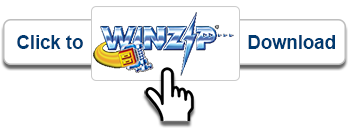The Ecommerce Templates shopping cart software Version 7.2.1 released 30th March 2020 introduced a method to enter Articles into the content management system, together with appropriate Rich Snippets for search engine optimization. Here is a guide explaining the configuration necessary to activate this truly wonderful new feature.
The ability to enter Articles with automated and valid schema.org structured data means that now you can add pages like:
- About Us
- Website Security and Privacy Policy
- How to Order
- Warranty and Returns Policy
- Product User Guides
- Any other topic desired
The benefits are:
- Articles now appear in your "All pages" list. They will also appear in website search results, whenever relevant.
- The feature works with SEO friendly URL's, the standard URL's and Static URL pages.
- You do not need the WordPress integration.
- Ecommerce Templates is now much more than just a shopping cart for the sale of "Products". You can use the software to build any type of website. It is clearly the superior option, far less cumbersome and optimised for quicker page load speed.
The configuration to activate the Articles feature with valid structured date is quite simple. Follow these steps:
includes.php entries

Download my sample includes.php entries
To activate automated structured data mark-up for both "Products" and "Articles", check that you do not have:
$noschemamarkup=TRUE;
If so, delete that entry, or change it to read:
$noschemamarkup=FALSE;
Add a new parameter to define both the article Publisher and Author identity. For example, I have this:
// SPECIAL PARAMETERS for ARTICLE PUBLISHER <=and=> AUTHOR SNIPPETS by I.T.ZAP Website Design Works
$publisher='<div class="articlepublisher" itemprop="publisher" itemscope itemtype="https://schema.org/Organization">
<div itemprop="logo" itemscope itemtype="https://schema.org/ImageObject">
<meta itemprop="url" content="https://itzap.com.au/pics/logo/itzap-web-logo.png">
</div>
<meta itemprop="name" content="I.T.ZAP Website Design Works">
</div>
<div class="articleauthor" style="display:none" itemprop="author" itemscope itemtype="https://schema.org/Organization">
<span itemprop="name">I.T.ZAP Website Design Works</span>
<a href="https://itzap.com.au/contact-itzap-website-design-works-in-bairnsdale-east-gippsland.php"
itemprop="url"></a></div>';
Edit these entries as appropriate for your website:
- meta itemprop="url" (the absolute filepath to your business logo)
- meta itemprop="name" AND span itemprop="name" (your Business Name)
- href= (the absolute filepath to your Contact Us page, or About Us page.)
Next, add a new parameter to define the Article page layout. I have this:
$articlepagelayout='productimage, productname, navigation, dateadded, description, socialmedia, previousnext';
Leave the SKU field out. Re-arrange those article elements however desired, in the same way as you will have done with $csproductpagelayout, $productpagelayout and $detailpagelayout
And now, if desired, you can display the SKU Label on PRODUCT pages.
$showproductsku="Order Code:";
That completes the necessary includes.php entries.
Adding an Article page
Go menu PRODUCT ADMIN, Product Admin and click the New Product button. Select a menu category Section and enter the Article details, same as you would for a Product. Price will be 0.00 zero. Weight and dimensions can remain blank.
There are only 2 differences to note.
(1) Author name – leave the SKU field blank

- Because article itemprop="author" details have now been defined above, entering an Author Name in the SKU field is no longer required. You can leave this field blank.
- The “Is Article” flag tick box was added in v7.5.2 released August 2022; a significant improvement. To have your Ecommerce Templates version updated, customers of I.T.ZAP can simply contact me for a quotation ⇒
If you do not have v7.5.2 installed, but some earlier version, then you need to follow this procedure:
(2) Is Article – Very important
- Down bottom, click Submit to save the article.
- Now, open the "Quick entry …" drop-down menu at left of screen.
- Select “Is Article” from the list.
- Tick the box beside the Article you just entered.
Note: If the tick box is empty, then that record is presumed to be a Product. - Scroll down bottom and click Submit

The products.php page
These steps are necessary ONLY IF your Products page layout or Recommended Products page layout parameter includes the “addtocart” and/or “quickbuy” elements, like this:
$productpagelayout='productimage, productname, listprice, discounts, price, description, detaillink, addtocart, quickbuy';
$csproductpagelayout='productimage, productname, listprice, discounts, price, description, detaillink, addtocart, quickbuy';
In that case, for every Article or Contact Us page entered, you need to hide the “Add to Cart” and “Quick Buy” buttons and "Out of Stock" message on the “products.php” page. Version 7.4.5 introduced an easy solution:
“The div.prodarticle and div.detailarticle classes have now been added to product and detail articles to make it easier to do things such as hide unnecesssary "buy" buttons in the product listings.”
Accordingly, for Article or Contact Us pages, simply add this code to your CSS stylesheet to hide the “addtocart” and “quickbuy” buttons.
div.prodarticle div.addtocart,
div.prodarticle div.qbuybutton,
div.prodarticle div.csaddtocart,
div.prodarticle div.csqbuybutton,
div.contact div.addtocart,
div.contact div.qbuybutton,
div.contact div.csaddtocart,
div.contact div.csqbuybutton {
display: none;
}
The proddetail.php page
There is no change whatsoever required to the PHP code on your “proddetail.php” page. Down in the <body>, the relevant PHP code to load the page content is:
<?php include "vsadmin/inc/incproddetail.php"; ?>
You are done !
https://itzap.com.au/
https://itzap.com.au/pics/itzap-ecommerce-templates-accredited-specialist.jpg
117 Princes Highway
Lucknow
Victoria
3875
AU
+613 499 347 269
$399 to $1,500